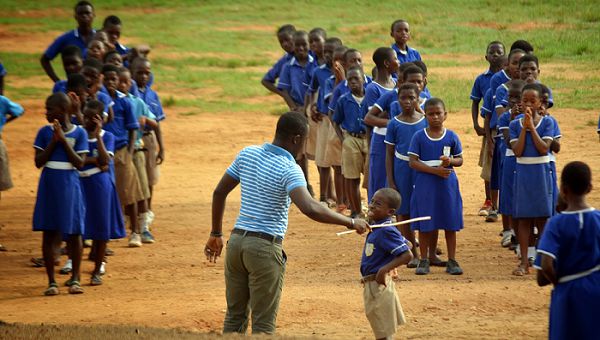
Corporal punishment: no place in modern era
Corporal punishment or physical punishment is the practice of causing pain as a form of punishment to correct wrongdoing.
It is usually administered on minors both at home and in school with caning or flogging being the key methods.
Advertisement
Though corporal punishment is frowned upon especially in the advanced world, it appears to be culturally accepted in some developing countries, Ghana inclusive.
Despite its negative effects, we seem to find it difficult to discard the obnoxious practice. Some of the lasting effects of this method of disciplining schoolchildren include physical scars, emotional scars (trauma, fear, timidity etc.) and violent behaviour.
These findings are based on scientific studies.
As would be expected, the Ghana Education Service (GES) on countless occasions has come out to denounce the practice and banned it.
Just a few days ago, the GES was announcing that it had banned that form of punishment in all private and public schools.
That was surprising to me because for some years now, the GES has on many occasions made it clear that the practice was “illegal”.
For example at the Speech and Prize-giving Day of Accra Academy in March 2017, the Director General of the service, Mr Jacob Kor, in his speech asked the management of all educational institutions to implement the ban on caning and other forms of corporal punishment with immediate effect.
He directed teachers to use alternative forms of punishment that would not be an impediment to the academic performance of students.
In this era of civilisation, this form of punishment continues to be very attractive to some teachers, some of whom boast of their caning prowess and dexterity.
In blatant disrespect for the United Nations Convention on the Right of the Child (CRC), which was ratified in Ghana in 1990 and the Children’s Act of 1998 (Act 560), some teachers have held on tight to the cane, using it to cause more harm than good to our children.
There have been many reports in the media about how the eyes and other parts of pupils have been damaged by corporal punishment but that has not caused some teachers to even hesitate in its use.
Not even when some pupils have been known to abandon school when they have no longer been able to bear the pain.
Some of these cases have found their way to the law courts while some parents have taken the law into their hands to visit mayhem on teachers who have harmed their children.
Both the use of the cane and reaction of the parents are very embarrassing and unacceptable.
This whole state of affairs seems to stem from the biblical quotation, ‘’Spare the rod and spoil the child,’’ but is this really what the Bible says?
That we should harm our children in such barbaric fashion?
This biblical quotation has been taken too much on the surface and is being used to cause physical and psychological damage to children.
How can assault and causing harm be considered as teaching?
I am still wondering why we don’t have a whole population of astronauts and rocket scientists if corporal punishment truly makes the student intelligent.
What may be refreshing about the re-announcement of the ban is a more emphatic addition that teachers should use other forms of punishment such as withdrawal of responsibility or removal from a leadership position, cleaning, changing of seating position, assignment of extra tasks and writing of lines, e.g. A full book of “I will never talk in class again”.
This is contained in a Positive Discipline Toolkit containing positive and constructive alternatives to correcting children which was developed in 2016 as a component of the Safe Schools Resource Pack.
However, and as often as is the case with our bans, enforcement remains an issue.
The ban can only be effective if those found to be flouting the ban are brought to book to serve as a deterrent.
The previous situation saw the GES having no sanction spelt out for teachers who used the cane and only encouraged people to report to it teachers they found doing so, following which the service would look at the circumstances and prescribe follow-up action.
I think that the GES should also announce the consequences of flouting the ban and make sure that enforcement is adhered to.
That is the only way we can see some reduction in the continuous abuse and harming of our children in this unacceptable manner.
Let us embrace positive change!
• Writer’s E-mail: [email protected]/[email protected]



